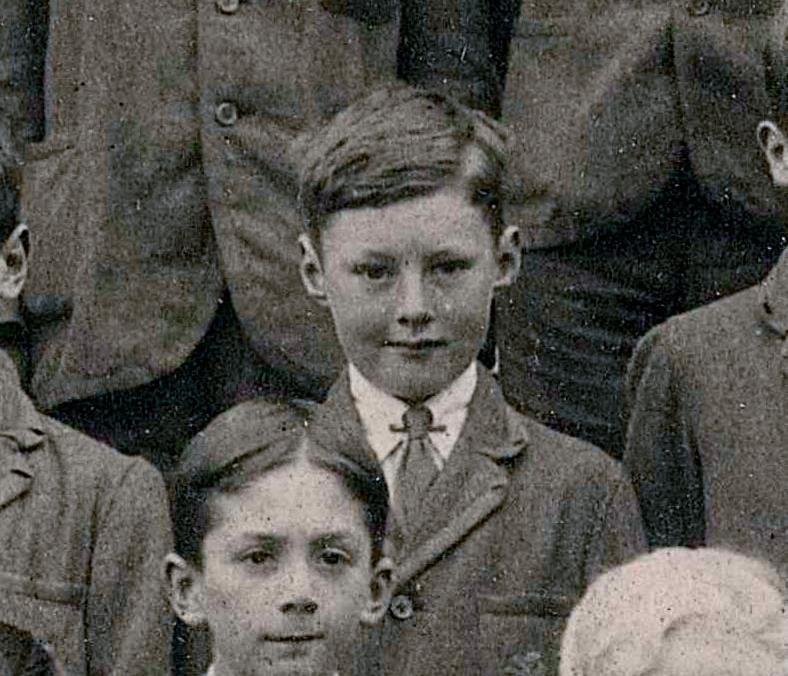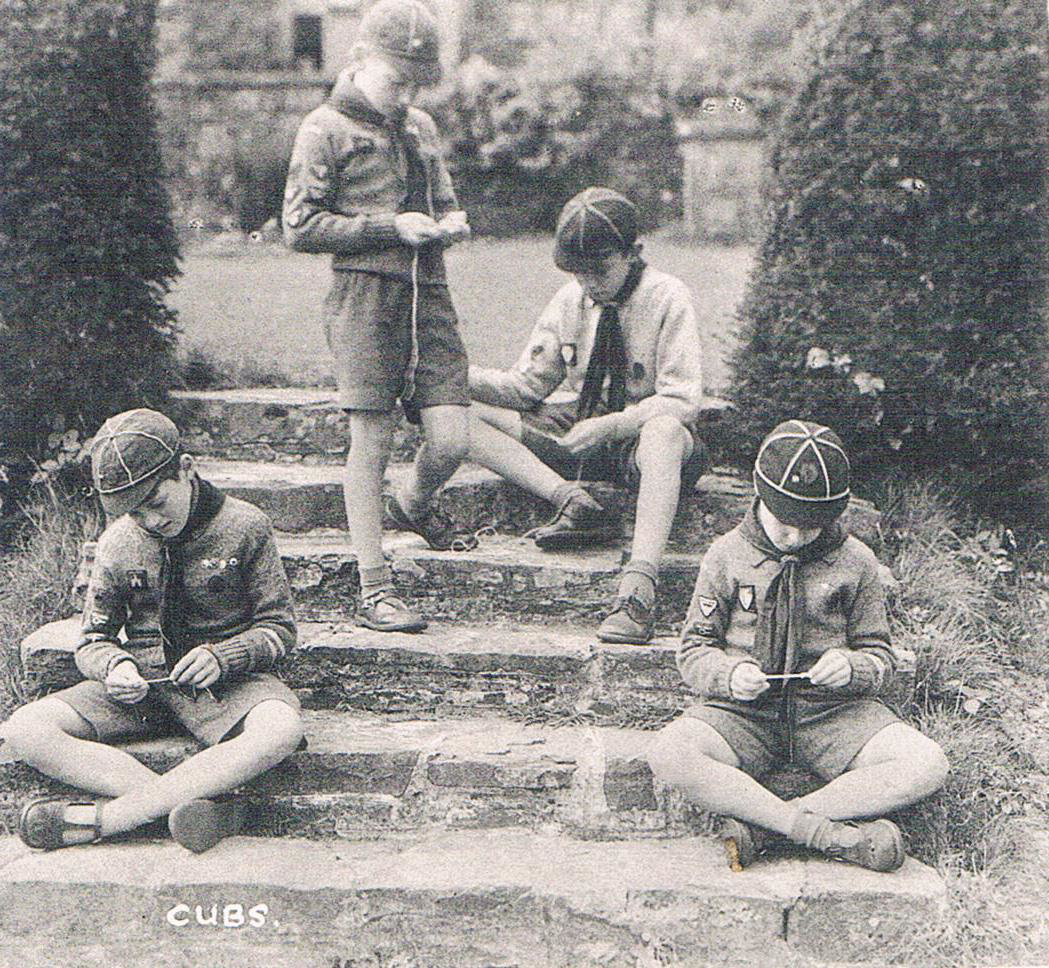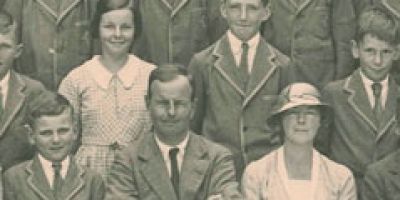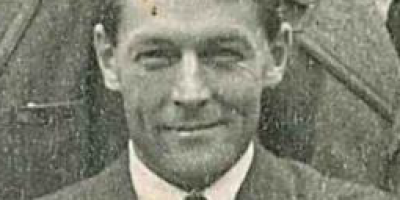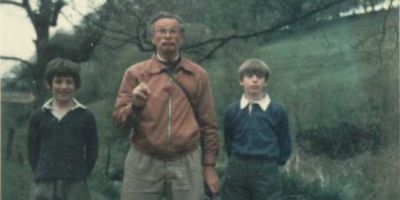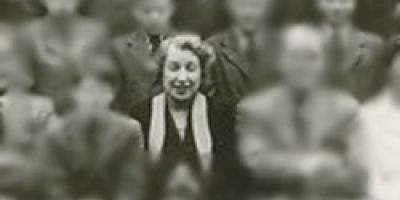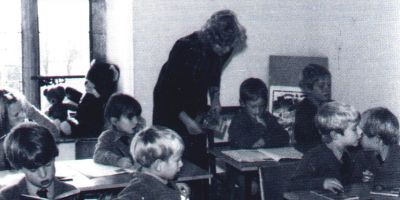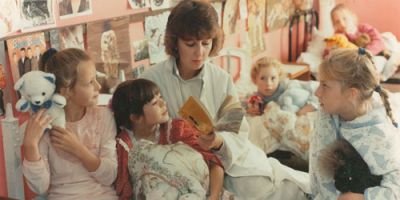Relocated to Ravenswood School, 1939 – 1945
R.F. JACKSON 1924 – 1930
Enrolled at Ravenswood Paignton in September 1924. The recorded memories of the earliest former Ravenswood Pupil and one that experienced the School at both locations, Paignton and Stoodleigh. This was passed to me by Carol Shore, who wrote the ‘Stories of Stoodleigh’ book in 2000. Copies of which are still obtainable. Contact 01392881540. This is, to the best of my knowledge, a hitherto an unpublished account of those very early days and predates even the first Volume of the Ravenswood Chronicles which only takes us back to February 1934; by then R F Jackson had ‘moved on.’
JOTTINGS FROM MEMORY—RAVENSWOOD 1924 - 1930
My first memory of Ravenswood dates from the day sometime in the summer of 1924 when I was taken to a preliminary interview with Mr. Spark at the school then in Cliff Road Paignton. I entered the school in September 1924 when there could not have been much more than 20- 25 boys. The staff consisted of Mr. and Mrs. Spark, Miss Joyce Spark, the Matron and Miss Anderson.We used to play soccer and cricket in Queens Park, Paignton, and it was necessary for us to erect and take down the goal posts at each game under the supervision of one Sergeant Dawson, the caretaker and grounds man.
In the 1920s the Home Fleet used to visit Torbay almost every year, and the Bay seemed to be full of ships: battleships, cruisers, destroyers, an aircraft carrier, and submarines. At a time when 24th May was still celebrated as Empire Day one had the impression of the power of the British Fleet. In the summer of 1925 Mr. Spark took the school to Torquay by tram, and we were taken out in a motor boat to tour the ships and go aboard the 'Royal Sovereign'. At about this time we were also taken to see a silent film of the Battle of the Falkland Islands which took place early in the 1914-18 War.
In the Christmas Term of 1924 the Labour Government under Ramsay MacDonald resigned and there was a General Election. I remember that in those days many of the general public wore party colours, and practically all the day boys went to school sporting our Conservative colours. There were one or two boys who were thought to be a bit odd, and they were so radical that they actually wore Liberal colours! There was general satisfaction when Mr. Stanley Baldwin and the Tories won the day.
From 1925 onwards we had an assistant master. and names which come to mind while we were at Paignton are Mr. Oates, Mr. Harman, Mr. Davies and Captain Cox. About four days after term started the General Strike began, and all transport and other services were brought to a halt. Volunteers were called for to run the railways and Mr. Spark went off to man the signal box at Paignton South (which will be known by anyone who has travelled on the Torbay and Dartmouth private steam railway). Mr. Davies on the way to school in the mornings would call at the signal box and receive school orders for the day from Mr. Spark. The Strike did not last long and Mr. Spark returned to school after this interesting episode. In the Christmas Term of 1927 great excitement was caused when the school heard that we were all to move to a large country house in a small village near Tiverton called Stoodleigh in the following Summer Term and so all of us day boys were to become boarders. It was suggested that some of our parents might like to visit Stoodleigh at Half Term, and some of us saw Stoodleigh Court, its grounds and its woods for the first time. I remember one or two of us climbing one of the fir trees near what is now the playground. Mr. Sparks comment was "At it already. I see!"
Thus early in May 1928 the move to Stoodleigh took place. All of us Paignton boys went by train to Exeter where Mr. Spark met us and we then crossed over to the Tiverton platform and caught the Branch train. The move appeared to go very smoothly so far as we were concerned, but no doubt there must have been much planning and hard work going on behind the scenes. Miss Anderson and a Miss Grigg both of whom had been at Paignton remained with us and were joined by two new masters. Commander Wace R.N. and Mr. Joscelyne, and a new mistress, Miss Henry a friend of Miss Grigg. Miss Anderson and the Commander only survived one term at Stoodleigh. Commander Wace was fond of calling one "a bally fried egg!" The food was normally quite good, but there was one incident I remember which was at breakfast on the last morning of our first term at Stoodleigh. We were given cold ham but no doubt because of hot weather and the lack of a refrigerator the ham was bad and contained maggots. This was hurriedly removed and we were then provided with 'boiled' eggs, but these were practically raw and unboiled and we really had to drink them! What matter, as we were off home that morning! I am sure that despite the breakfast we were able to sing 'One Man Went to Mow' in the bus taking us to the station, at least until we reached Bolham where singing had to cease.
The whole school had to have a cold bath every morning unless you were ill with a cold. We would hear Mr. Spark creak along the passage wearing his slippers (hence the nickname we gave him 'Creaker'). We would hear the swish of water as the cold tap was turned on, and then the bell would ring, and we would all jump in the cold water one by one. If you did not lie down properly and cover your shoulders and arms you would have to do it again! The arrangement about tuck was that all sweets had to be handed in to Matron which we either brought back or were given during term. Tuck was then rationed out usually at tea time on Sundays. In the winter terms we would very often assemble in the drawing room and Mr Joscelyne would read to us—sometimes Dickens, or Wodehouse, while we sucked away at our Sweets!
Mr. Huyshe arrived in the Christmas Term 1928, and was to become Mr. Spark's partner and was to remain for nearly 20 years. Other staff came and went—Mr. Sam, Miss Senior, Miss Huggins, Mr. Mitchell. and there was Matron, Miss Bell. The Annual Armistice Day, then always on November 11th, was always marked at Ravenswood with a lantern slide lecture by Mr. Spark showing pictures of the ruins of Ypres and other places on the Western Front, and pistols, gas masks, and other objects were displayed in the Hall.Mr. Spark was very keen on Scouting and one afternoon a week was given up to it. I remember trying to pass the Scout Pace test (1 mile in 12 minutes—run 20, walk 20) down the road to the village and back by the Church Path.
There was one unsuccessful attempt at camping, which ended in pouring rain which brought us back to the dormitory at about 4.00 a.m. On another occasion when we were all busy lighting a fire with one match, one very keen scout managed to turn his camp fire into a raging bonfire and would have set the woods on fire had he not been stopped by a very irate 'Creaker'! As to our clothing we wore grey shorts, grey shirts, school tie with grey sweaters in the winter terms and school blazers in the summer term. Or Sundays we squeezed into stiff Eton collars, Members of the 4th Form did duty as bell ringer one week, and orderly another week. If you did your job satisfactorily and members of the staff confirmed this you were invited to stay up for supper with the staff on the Sunday following. 1 should also mention the 'Tigers' Army' - a 'secret' society formed by some of the Paignton day boys just before we moved to Stoodleigh. The Army had military ranks, a secret code, and rules, and at Stoodleigh we built a hut in the woods with a barricade. We waged war with fir cones as ammunition against a rival society—the Woodman's League. We also managed to produce a magazine. One copy was written out by hand in coloured inks and copied on the school copier, and a second copy was typed by one of the members' aunt, and was passed round, and readers had to pay 6d or 3d for the privilege! Awards and punishments consisted of Stars and Stripes. Stars consisted of pink slips of paper and were doled out in quarter stars, When you had acquired 4 you received a full star and a red circle would be inserted against your name on the Notice Board. 10 full stars warranted a Star Prize. Stripes consisted of blue slips and for wrong doing you received a full stripe, and a blue circle against your name. There were no quarter stripes! There was no going home during term, and visits to the school by parents were very few and far between. Normally our parents took us out for the day at summer half term. and would come to the annual sports day, but that was about all, except possibly a special 'business' visit to discuss our future.
R. E. Jackson.
